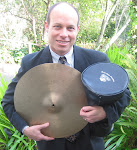Activities to use in a pinch
Not every school day goes well—students learning and the teacher
enjoying herself. Some days have been and will be quite challenging. I’ve been
threatened and laughed at by students, splattered by water balloons, chewed out
by parents, and criticized by administrators. Even during these difficult and
frustrating times, I found balance with a satisfying teaching moment or successful
lesson. Typically, I would engage in a few of my (students’) favorite things.
- An informal assessment with “baseball”—I pick the kids and they pick the difficulty of the assessment question—a single, double, triple, or homerun. I run them around the class if they answer the question successfully.
- With dramatic passion, partaking in a read aloud of a passage of primary source text.
- A performance of a skit, created myself or purchased, on a historical topic.
- The bubble: three or four students discuss a difficult subject while the rest of the class watches.
- Students pairing-up to discuss or review a concept followed by a demanding Socratic seminar.
- Illustrating a concept with a cartoon, earning extra credit if the work is funny.
- Asking students to write a short (three-paragraph) story with the six vocabulary words we just learned
- Providing feedback on whether a concept was learned through students self-reporting, using a Likert (one to five) scale.
- Psychological demonstrations and experiments on memory, reinforcement and punishment, and perception.
- Assigning poster presentations or PowerPoint presentations on controversial history and economics topics and biographical anecdotes.
- Analyzing primary source documents such as political cartoons, photographs, short speeches, and editorials placed around the room.
- Bringing in technology—making a video commercial of a concept, “publishing” a biography in Facebook format, and doing web searches.
Some of these activities are teacher-centered and some are
student-centered. They all engage both student and teacher and usually succeed.
Teachers may compose these activities themselves, copy and adopt colleagues’
activities, discover and implement lesson plans from trade magazines such as Social Education and American Educator, find lessons on
various internet sites, buy lessons from publishers, and create lessons through
a summer group devoted to that purpose such as Teaching American History (TAH).
Too many teachers mindlessly use the textbook as their main
teaching tool. I find three problems with this. First, the state standards and
your department’s agreement on which ones are most critical and not the pages
of the textbook should determine your curriculum. Second, many textbooks
include topics that are not part of the state standards and do not include
enough material on standards that may be more important. Third, students with
poor literacy skills and those unable to steadily concentrate have trouble
reading a dense textbook.





